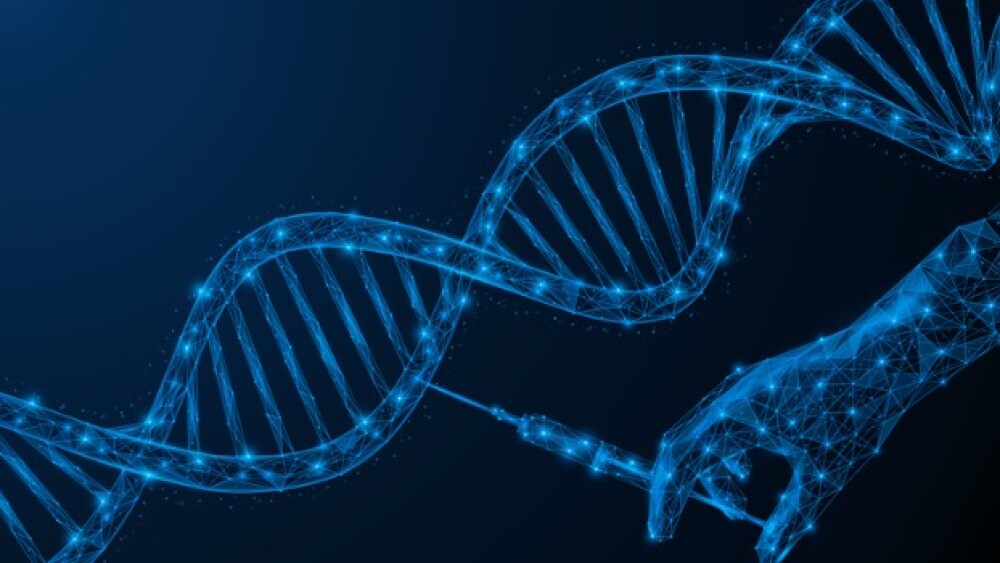Two days after winning FDA approval, Orchard Therapeutics on Wednesday provided its U.S. launch plans for metachromatic leukodystrophy gene therapy Lenmeldy, which has a wholesale acquisition cost of $4.25 million for the one-time treatment.
Pictured: Illustration of a gene therapy showing a syringe injecting a treatment into a DNA strand/iStock, Ilya Lukichev
Orchard Therapeutics on Wednesday revealed details regarding the U.S. commercial launch of the newly approved Lenmeldy (atidarsagene autotemcel), giving the one-time gene therapy for metachromatic leukodystrophy a wholesale acquisition cost of $4.25 million.
To justify Lenmeldy’s pricing, Orchard touted not just the therapeutic benefits of the gene therapy but also the “potential long-term impact treatment may have on overall healthcare utilization,” according to Wednesday’s announcement. Lenmeldy treatment could also help minimize the productivity loss for caregivers as well as open up more life opportunities for patients, the company contends.
The biotech also noted that it arrived at Lenmeldy’s price tag after completing a comprehensive health technology assessment (HTA) by the Institute for Clinical and Economic Review (ICER), an independent and non-profit organization that conducts cost-effectiveness analyses of treatments. The ICER had set Lenmeldy’s health benefit price benchmark at up to $3.94 million.
Bennett Smith, general manager of North America at Orchard, in a statement said that the ICER found Lenmeldy “to have the highest value-based price for any treatment it has evaluated to date,” adding that the gene therapy has also been recognized by various HTA authorities all over the world.
Metachromatic leukodystrophy (MLD) is a rare and genetic metabolic disorder afflicting one in every 100,000 live births. The disease is caused by a mutation in the arylsulfatase A (ARSA) gene, which in turn leads to the toxic build-up of sulfatides in various organs in the body, such as the brain, liver and kidneys.
Over time, this pathologic accumulation causes organ damage, leading to the hallmark symptoms of MLD like cognitive and behavioral problems. Patients with MLD also eventually lose the ability to move, talk and eat.
To address the underlying genetic cause of MLD, Lenmeldy delivers a functioning copy of the ARSA gene using the patient’s own stem cells. The FDA approved Lenmeldy on Monday, making it the first-ever authorized gene therapy for early-onset MLD in the U.S.
To further illustrate the value of Lenmeldy, Orchard in its news release on Wednesday said that the gene therapy was able to significantly and strongly improve survival in treated children at six years of age. Most patients who were treated with Lenmeldy were also able to walk without assistance and reach normal language and performance IQ scores at age five.
Touting these data, Orchard CEO Bobby Gaspar in a statement called Lenmeldy “truly a paradigm-shifting medicine” with the “potential to stop or slow the progression of this devastating childhood disease with a single treatment.”
Lenmeldy’s hefty price tag continues the trend of rapidly ballooning wholesale acquisition costs for gene therapies. Vertex Pharmaceuticals and CRISPR Therapeutics priced their sickle cell disease treatment Casgevy (exagamglogene autotemcel) at $2.2 million, while bluebird bio gave its competing therapy Lyfgenia (lovotibeglogene autotemcel) a price tag of $3.1 million.
By comparison, Sarepta’s Duchenne muscular dystrophy gene therapy Elevidys is priced at $3.2 million.
Tristan Manalac is an independent science writer based in Metro Manila, Philippines. Reach out to him on LinkedIn or email him at tristan@tristanmanalac.com or tristan.manalac@biospace.com.






